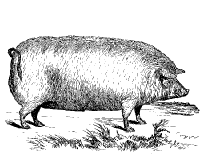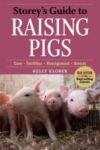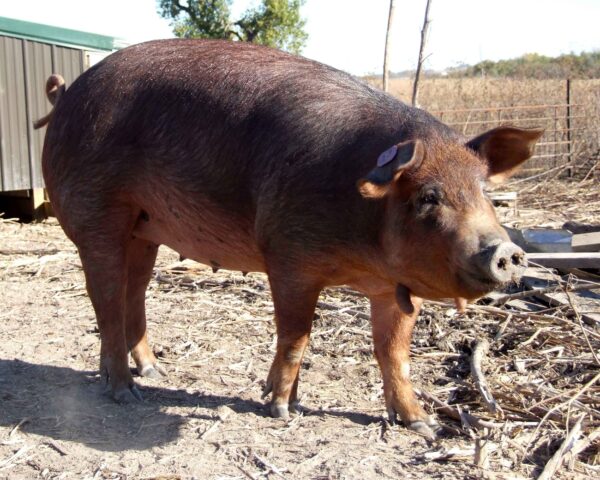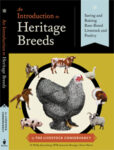
Breed Facts
Status:
Threatened
Use:
Meat
Adult Weight:
Male – 750-800 lbs.
Female – 550-600 lbs.
Temperament:
Docile
Experience Level:
Beginner
Notes:
May be used for Bacon, Loin (Whole & Chops), Roasts, Ham, Bacon, Sausage/Ground, and other retail cuts
RED WATTLE
The Red Wattle is a large, red hog with a fleshy “wattle” attached to each side of the neck. These wattles are a single-gene characteristic with no know function; they usually pass to crossbred offspring. The breed is unique to North America making them especially valuable genetically.
The origin of the Red Wattle hog is obscure, but red hogs with wattles have been known in North America since at least the mid-1800s. It is believed that their ancestors were introduced through the Gulf of Mexico and spread throughout the country. The modern Red Wattle hogs trace their roots to the 20th-century descendants of the wattled pigs from Texas.
In the mid-1980s, The Livestock Conservancy facilitated a meeting of Red Wattle breeders to encourage them to unify their efforts to benefit the breed. The breeders preferred to continue with the three-registry system they had at the time. The Conservancy’s 1990 census reported 272 purebred registered offspring. In 1999, Jerry Russell began to search for Red Wattle hogs, but only found 42 breeding animals belonging to six breeders. None of the three registries had registered stock in years.
The Red Wattle Hog Association was founded in 2001 with the support and encouragement of The Livestock Conservancy. Beginning with only 8 members, the breed association continues to grow and support the breed throughout America.
The Red Wattle comes in a variety of shades of red, from light blond to almost black. The color is consistent throughout the animal. Animals with black spots may be registered if the spots are small and only appear on the belly area. Some boars have impressive tusks but are generally docile. Hair can be short and straight or long and wavy. The head and jowl are clean and lean, the nose is slim with a slight curve, and the ears are upright with drooping tips. The body is short-coupled, and the rump/rear end is slightly arched. Sows are excellent mothers, farrowing 7 to 12 piglets and providing good quantities of milk for their large litters.
Mature animals weigh 600 to 800 lbs. but can be as large as 1,200 lbs. They measure up to 4 feet high and 8 feet long when fully grown. Most breeders now prefer butcher weights of around 300 to 325 lbs., with hanging weights from 220 to 245 lbs. Red Wattle hogs are known for their hardiness, foraging activity, and rapid growth rate – they may be fully mature at the age of three. They produce well-marbled, flavorful meat that is described as tasting similar to beef. They get essential minerals as they graze, so they do not need commercial feed. Red Wattle pigs have a very high Feed Conversion Ratio (FCR). According to The Livestock Conservancy’s senior program manager, “They are a pig that has great growth rate, almost similar to commercial pigs, which makes them a really viable option if you’re looking to market pork beyond just raising it for the family.”
Red Wattles adapt to a wide range of climates. Their active foraging makes them a good choice in outdoor or pasture-based swine production. They have a mild temperament, and their gentle nature is a good option for the small-scale, independent producer.
Did you know:
Heritage breeds are being raised on more than 4,000 farms, ranches, and backyards across America. Still, new breeders must be recruited to protect and expand rare livestock and poultry populations. America’s farmers are aging; future generations of breeds need future generations of breeders. That’s why Livestock Conservancy microgrants now include a Youth Division to encourage tomorrow’s breed stewards. Click here to invest in the future with a gift today.
You may be interested in…

Storey’s Guide to Raising Pigs
– Kelly Klober
$19.95
An Introduction to Heritage Breeds
– D. Phillip Sponenberg, Jeannette Beranger. Alison Martin
$19.95


